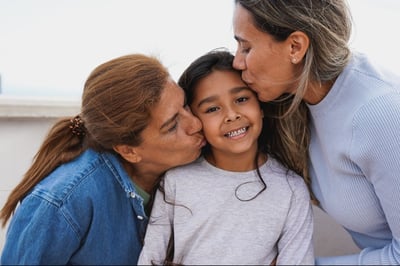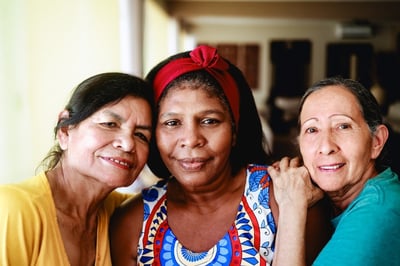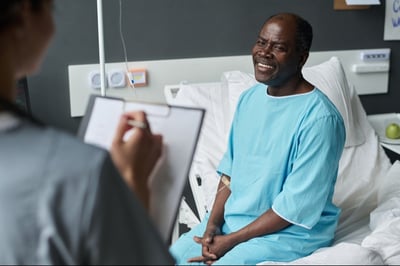Endometrial Cancer



Relevance: Medium-High
Most relevant for: People who have had or are considering liquid biopsy testing
Topic: What Patients Need to Know About Liquid Biopsies in Cancer Care
Liquid biopsies are tests that look for signs of cancer in blood or other body fluids. These signs can include cancer cells that have broken away from a tumor, pieces of cancer cell DNA and proteins or other biomarkers found in cancer cells. Liquid biopsies can be used to screen for cancer before a cancer diagnosis or guide treatment after a diagnosis. (posted 2/6/26)
READ MORE ›


Relevance: High
Most relevant for: Men and women diagnosed with breast cancer who have a BRCA1 or BRCA2 mutation
Study: Understanding the risks of a second cancer after a breast cancer diagnosis in people with BRCA1 and BRCA2 mutations
After breast cancer, people who have a BRCA1 or BRCA2 mutation face a greater risk of a second cancer compared to individuals without a BRCA mutation. This study helps to better understand this risk so that breast cancer survivors with mutations can receive informed, personalized plans for surveillance and follow-up care. (Posted 12/11/25)
READ MORE ›


Relevance: Medium-High
Most relevant for: Women with a BRCA1 or BRCA2 mutation who have a uterus.
Study: Study: Endometrial cancer risk for people with BRCA1 and BRCA2 mutations
This study looked at how often endometrial cancer occurred in people with BRCA1 or BRCA2 mutations to better understand how BRCA mutations affect the risk of endometrial cancer. The researchers also asked whether known risk factors for endometrial cancer impact the frequency of endometrial cancer in people with BRCA1 or BRCA2 mutations. Findings from the study highlight the importance of shared conversations between patients and providers regarding risk monitoring and preventive options. (posted 10/7/25)
READ MORE ›


Relevance: High
Most relevant for: Families with a known MLH1 mutation
Study: Cancer may occur at earlier ages in later generations of families with Lynch syndrome
In families with Lynch syndrome mutations, cancer may occur at an earlier age with each generation. This study looked at the effect called anticipation in families with MLH1-associated Lynch syndrome. (Posted 10/3/25)
READ MORE ›


Relevance: Medium-High
Most relevant for: People at high risk for hereditary cancer
Guideline: Hereditary cancer gene guidelines expand
The National Comprehensive Cancer Network regularly updates guidelines for several types of hereditary cancer. These recommendations often change when new research is published. Recently, the NCCN expanded its guidelines to include information on hereditary prostate and gastric cancers. (Posted 1/6/25)
Este artículo está disponible en español.
READ MORE ›


Relevance: Medium-High
Most relevant for: People with endometrial cancer
Update: News from the FDA: New endometrial cancer approvals
The FDA recently approved three new immunotherapy treatments (Jemperli, Imfinzi and Keytruda) for advanced endometrial cancer. (Posted 11/7/24)
Este artículo está disponible en español.
READ MORE ›


Relevance: Medium-High
Most relevant for: People with cancer interested in using cannabis to help manage symptoms.
Study: Use of cannabis for cancer symptom management
Among people with cancer, interest in the use of cannabis to manage cancer symptoms and treatment side effects is high. The world's leading professional organization of oncologists has published strategies to help adults with cancer and their healthcare providers have open, nonjudgmental discussions about the use of cannabis to manage cancer symptoms. (Posted 9/27/24)
Este artículo está disponible en español.
READ MORE ›


Relevance: Medium-High
Most relevant for: People with advanced endometrial cancer
Study: Managing the side effects of advanced endometrial cancer treatment
Immunotherapy plus targeted therapy is a treatment option for advanced endometrial cancer that has progressed after prior treatment. People who start the two-drug combination are more likely to have a positive experience if they learn about the possible side effects and when they might occur. The most common side effects and how to manage them are discussed in this review. (Posted 9/25/24)
Este artículo está disponible en español.
READ MORE ›


Relevance: High
Most relevant for: People diagnosed with cancer
Topic: Acupressure for cancer symptom relief
Acupressure is a safe treatment that can be used to relieve some symptoms of cancer and side effects of treatment. Light pressure applied to key points on the body may help with fatigue, sleep, nausea and possibly other symptoms as well. (Posted 8/1/24)
Este artículo está disponible en español.
READ MORE ›


Relevance: Medium-High
Most relevant for: People with advanced HER2-positive cancer
Topic: The drug Enhertu is FDA-approved for any advanced or metastatic HER2-positive tumors
The FDA granted accelerated approval of Enhertu for people with any HER2-positive tumor that is metastatic or cannot be surgically removed. Eligible patients must have had previous treatment such as chemotherapy or hormone therapy. (Posted 7/19/24)
Este artículo está disponible en español.
READ MORE ›